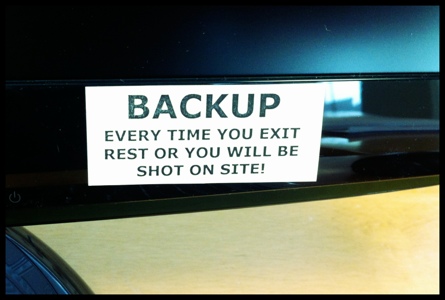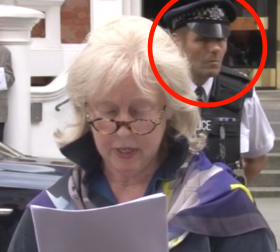
These notes (by Nat Torkington @gnat — available as google doc here) are from discussion/part of Judge David Harvey‘s presentation at Nethui underway now in Auckland. They directly touch on some of the recent discussion we’ve had on the topic of online free speech and harassment.
[Harvey:] This session looking at bad behaviour online. Law Commission said that existing law does address bad behaviour. First question: what do we understand by “bad behaviour” and what extent are we prepared to see restriction on free speech and expression online? Look at the harms that are occurring and take it from there.
Audience: Back in the days of Usenet, online forums, every other community that existed online, common practice that community established its own standards. I have a problem with this because I see a lot of abuse of the idea of “bad behaviour” to be anything from disagreeing with someone. I see it misapplied liberally these days. Not in favour of harassment, but allowed to have a personal opinion.
Harvey: If you used Usenet, you’ll recall there was some robust discussion.
Audience: That’s where “trolling” came from At that point does community enforcement and banning users become a civil issue?
Harvey: You’re suggesting online communities should regulate themselves?
Audience: At what point does say “get out” not enough, become a case for the legal system?
Harvey: Will avoid the second part, go to the first part and ask for some views. Within an environment, a community such as Usenet, that could be fine. But the problem that we’re getting is people setting up web pages that can be used for abuse, going beyond defamation, very hurtful. Bloggers using blogs as means of causing other people distress. People using Twitter and FB as means of upsetting people. Twitter and FaceBook may be examples of your community, but what about blogs and webpages, what community will regulate those? [Audience: ah, yes!] We are looking at a whole range of protocols across the Internet.
Audience: I had a question (relating to publications and books) … … … the difference between hurtful speech and things that are causing people distress. What are facts for one person can be distressing for another. Do we have a definition for what is required? Is it sufficient that something causes someone distress?
Harvey: The answer to your question is yes, and indeed it can be true. It comes under the umbrella of the Harassment act. At the moment there’s a two-stage test: there’s something that’s hurtful to me, and I’m disturbed by it. You might say “what? He’s disturbed by it? That’s nothing”. You must look at it from my subjective point of view. Then you must have an objective test: is it reasonable for a person in my circumstances to see it that way. There are circumstances when the truth has given offence. …
Have a read of his notes thanks to @gnat
There’s quite a bit of discussion about ‘take-down’ orders as a remedy (or not) and Russell Brown shares the idea that moderating ‘defamatory or offensive’ content in a comment stream or [annotating] ‘invalid materials’ is worthwhile.
In my own case, I sometimes add a note that an assertion is being questioned or disputed by the relevant party. It’s not ideal, but a sort of half-way house when something is beyond the scope of this blog to determine the objective ‘truth’ and discussion about it seems reasonable.
—
It seems eventually a video of Judge Harvey’s presentation will be available — here for instance: http://www.r2.co.nz/20120711/recordings.htm
– P
PS This thought in the notes, from blogger/propagandist David Farrar (I think), echoes my own philosophical approach to ‘derogatory’ comment about me sitting on the web:
If [the] commission made a finding of fact [about false information published on the web], media would link to it and it’d be high rank on Google. I think the best way to fight bad information is to put out more good information.
Yeah, agreed. As I said to Sarah recently about the tweebs trying to mess with my reputation:
My own approach was to just keep blogging good stuff and let the search engines eventually work out what was irrelevant.
That’s sort of where I was heading, too, with the ideas in ‘The curse of hypervigilance‘. Try to keep things in perspective in the ‘wild west’ of cyberspace.














